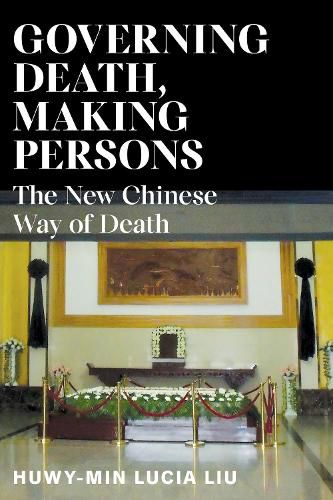Readings Newsletter
Become a Readings Member to make your shopping experience even easier.
Sign in or sign up for free!
You’re not far away from qualifying for FREE standard shipping within Australia
You’ve qualified for FREE standard shipping within Australia
The cart is loading…






Governing Death, Making Persons tells the story of how economic reforms and changes in the management of death in China have affected the governance of persons. The Chinese Communist Party has sought to channel the funeral industry and death rituals into vehicles for reshaping people into modern citizens and subjects. Since the Reform and Opening period and the marketization of state funeral parlors, the Party has promoted personalized funerals in the hope of promoting a market-oriented and individualistic ethos. However, things have not gone as planned.
Huwy-min Lucia Liu writes about the funerals she witnessed and the life stories of two kinds of funeral workers: state workers who are quasi-government officials and semilegal private funeral brokers. She shows that end-of-life commemoration in urban China today is characterized by the resilience of social conventions and not a shift toward market economy individualization. Rather than seeing a rise of individualism and the decline of a socialist self, Liu sees the durability of socialist, religious, communal, and relational ideas of self, woven together through creative ritual framings in spite of their contradictions.
$9.00 standard shipping within Australia
FREE standard shipping within Australia for orders over $100.00
Express & International shipping calculated at checkout
Governing Death, Making Persons tells the story of how economic reforms and changes in the management of death in China have affected the governance of persons. The Chinese Communist Party has sought to channel the funeral industry and death rituals into vehicles for reshaping people into modern citizens and subjects. Since the Reform and Opening period and the marketization of state funeral parlors, the Party has promoted personalized funerals in the hope of promoting a market-oriented and individualistic ethos. However, things have not gone as planned.
Huwy-min Lucia Liu writes about the funerals she witnessed and the life stories of two kinds of funeral workers: state workers who are quasi-government officials and semilegal private funeral brokers. She shows that end-of-life commemoration in urban China today is characterized by the resilience of social conventions and not a shift toward market economy individualization. Rather than seeing a rise of individualism and the decline of a socialist self, Liu sees the durability of socialist, religious, communal, and relational ideas of self, woven together through creative ritual framings in spite of their contradictions.